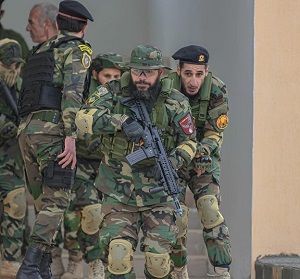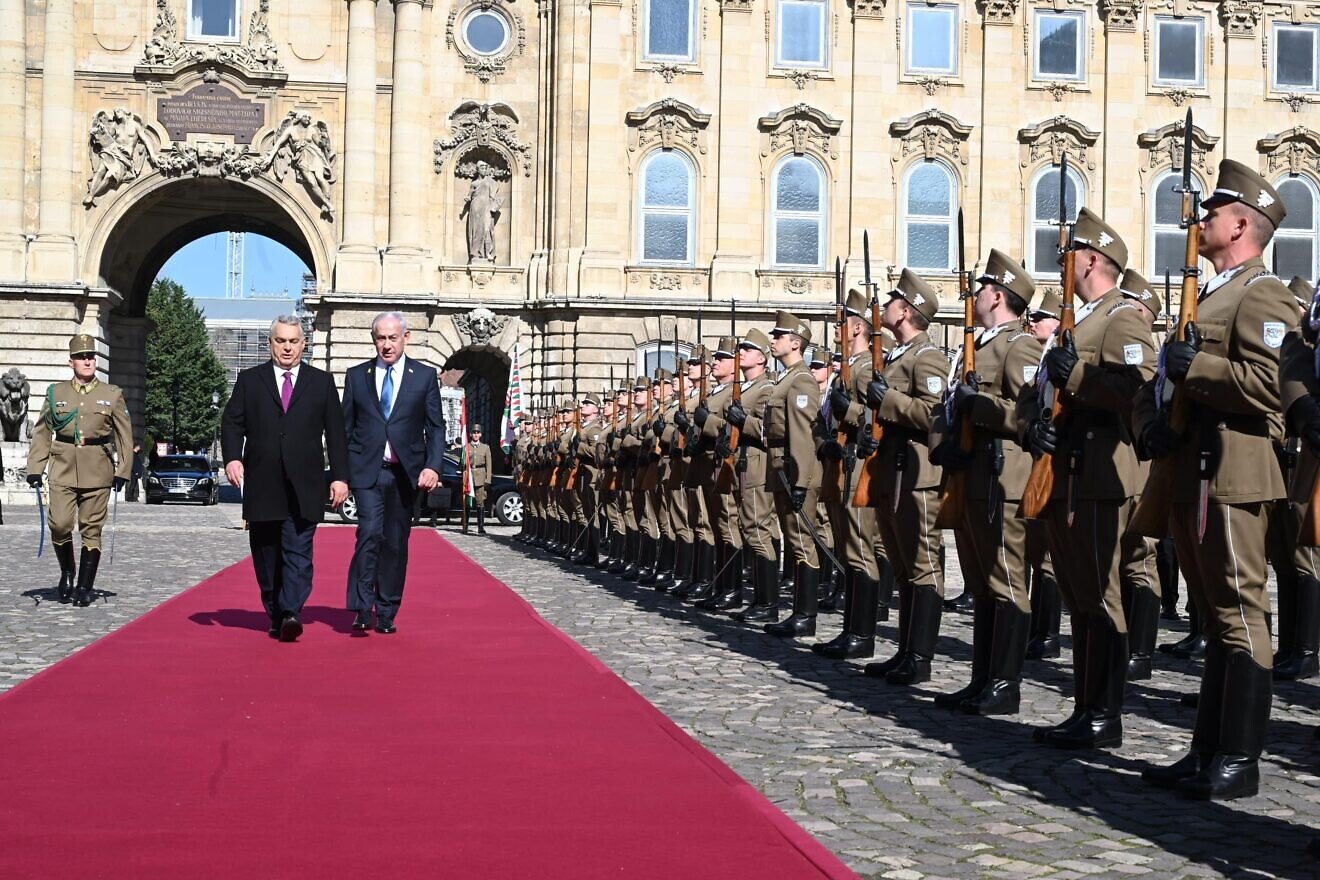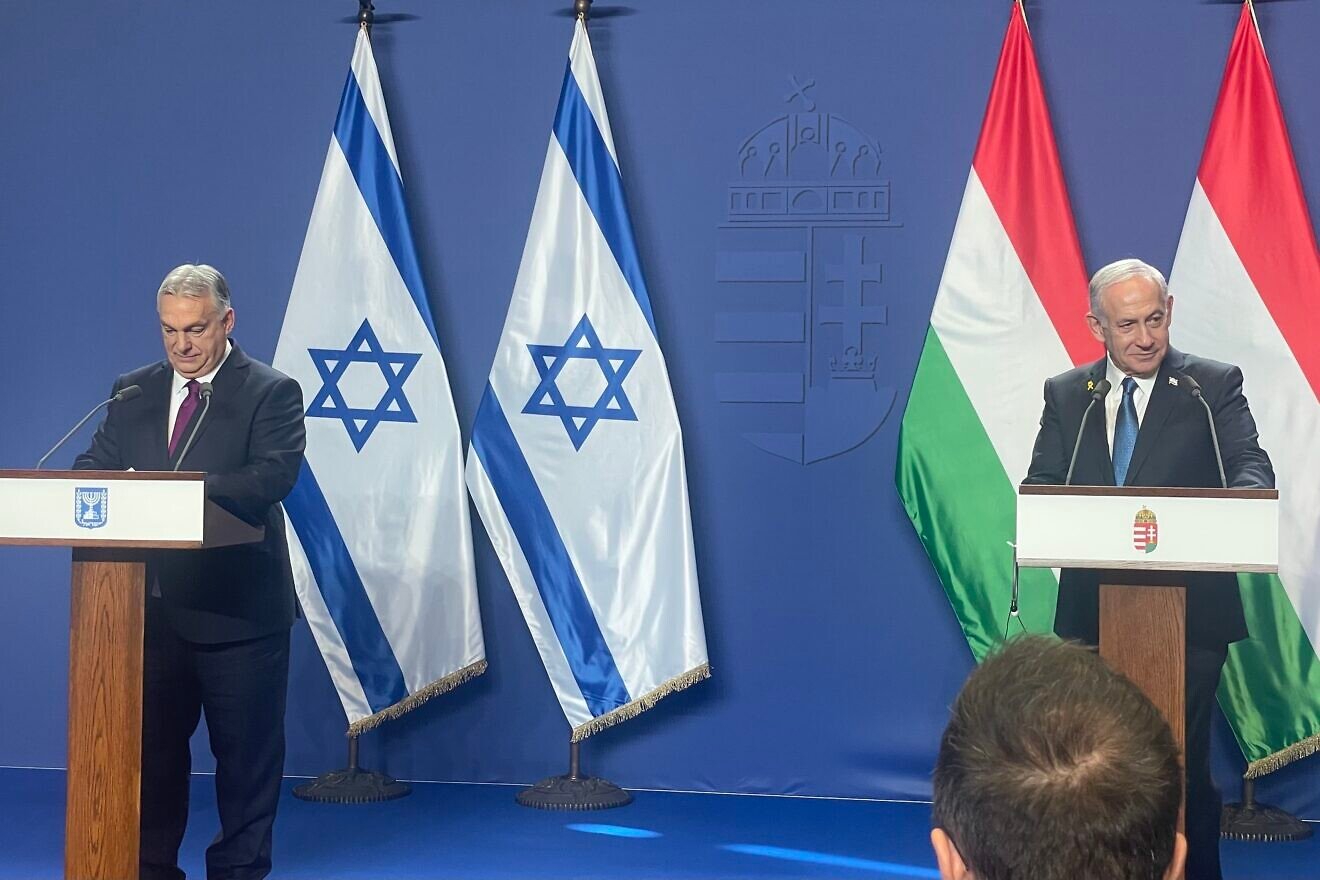 Semazen, czyli derwisz, w masce gazowej na antyreżimowej demonstracji w Stambule
Semazen, czyli derwisz, w masce gazowej na antyreżimowej demonstracji w Stambule
 Turcja: moment neoosmański
Turcja: moment neoosmański
Alberto M. Fernandez Tłumaczenie: Małgorzata Koraszewska
To musiał być słodko-gorzki moment. Kilka dni po tym, jak Unia Europejska pochwaliła Turcję jako ważnego sojusznika, podczas gdy UE starała się sprzeciwić Stanom Zjednoczonym i wesprzeć Ukrainę w wojnie z Rosją, reżimem Erdogana wstrząsnęły masowe demonstracje po rządowych represjach wobec opozycji politycznej.
Na arenie międzynarodowej, wszystko układało się wyjątkowo dobrze dla Ankary. Rzeczywiście, można by powiedzieć, że Turcja osiągnęła punkt zwrotny w walce o wpływy. [1] Pomimo mdłych ostrzeżeń ze strony UE, że Turcja musi „podtrzymywać wartości demokratyczne”, jest całkiem prawdopodobne, że Turcja nadal będzie czerpać ogromne korzyści z relacji z Europejczykami, w tym Ukraińcami, a także z Rosją i Stanami Zjednoczonymi. [2]
Fakt, że reżim staje się wewnętrznie jeszcze bardziej autorytarny niż dotychczas, wydaje się niewielką przeszkodą na drodze do międzynarodowych wpływów. Turcja jest dużym krajem z silną armią i rozwijającym się przemysłem obronnym, strategicznie zlokalizowanym między Europą a Azją (co już Rzymianie wiedzieli dawno temu o Anatolii i Konstantynopolu). Jest również państwem granicznym na linii frontu z UE, więc może zamknąć lub szeroko otworzyć kurek nielegalnej imigracji na Zachód i nie waha się tego robić. Oczekuje, że za przymykanie tego kurka dostanie haracz i pieniądze nadal będą płynąć do Turcji.
Ale szereg czynników – wojna (przez zastępców) Iranu z Izraelem, lokalne wojny domowe, ogromne ambicje Erdogana – doprowadziły do przyjęcia przez Turcję roli swego rodzaju nieformalnego imperium na Bliskim Wschodzie i w Afryce, co pozwoliło jej na projekcję siły i wpływów daleko poza jej granice. Przez pewien czas wyglądało na to, że Erdoğan był zbyt odważny, co spowodowało, że kilku potencjalnych przeciwników zbliżyło się do siebie – Grecja, Egipt, Izrael, ZEA. Ale kilka lat temu reżim Erdogana zdecydował, że bezpośrednia konfrontacja ideologiczna z państwami arabskimi, takimi jak Egipt, ZEA i Arabia Saudyjska, jest zbyt kosztowna. [3] Ankara złagodziła retorykę, uciszyła swoich arabskich islamistycznych pełnomocników i złożyła niezbędny ukłon, aby przywrócić, jeśli nie ciepłe stosunki, to przynajmniej lepsze stosunki z tymi państwami.
Ten „rodzaj imperium”, jaki Turcja zdobyła, składa się głównie z upadłych, pariasów lub kleptokratycznych państw na obszarze od Morza Kaspijskiego do Sahary. Wyjątkiem i klejnotem w koronie tej mrocznej konstelacji jest Katar. To nie jest satelita ani marionetka, ale pełnoprawny partner, zwłaszcza finansowy, podzielający z Turcją ten sam ambitny, radykalny islamistyczny światopogląd. Oba kraje są kluczowymi sojusznikami terrorystów Hamasu w Gazie. [4]
Ale poza Katarem Turcja ma bliskie, trwałe relacje z reżimami w Azerbejdżanie, Libii, Sudanie, Somalii i Syrii. Relacje te różnią się w zależności od miejsca. Niektóre, jak bogaty Azerbejdżan, nie są klientami, ale etnicznymi, politycznymi sojusznikami, którzy mogliby pójść gdzie indziej, ale tego nie zrobią. Azerbejdżan i Turcja sprzymierzyły się przeciwko Ormianom i Rosjanom oraz w wielu innych przedsięwzięciach, ale Azerbejdżan ma znacznie cieplejsze więzi z Izraelem niż Turcja. Ropa z Azerbejdżanu płynie do Izraela rurociągiem Baku-Tbilisi-Ceyhan (BTC), a następnie tankowcami z Turcji do Hajfy. Pomimo wsparcia Turcji dla Hamasu i zaciekłej wrogości wobec Izraela, ropa nadal płynie nieprzerwanie przez całą wojnę w Gazie.
Jest prawdopodobne, że reżim islamistyczny w Trypolisie w Libii uległby siłom libijskiego przywódcy Chalify Haftara dawno temu, gdyby nie interwencja Turcji. Jest to bogate w ropę zależne od Turcji terytorium na wybrzeżu Afryki Północnej, reinkarnacja Libii sprzed wojny włosko-tureckiej z 1911 r.

Libijscy żołnierze przechodzą szkolenie w Turcji.
Sudan pod rządami byłego dyktatora Omara Al-Baszira był bliskim sojusznikiem Erdogana, a więzi te zostały wzmocnione i ożywione podczas wojny domowej w Sudanie przez armię sudańską (SAF). SAF jest dziś bliżej całkowitego zwycięstwa niż kiedykolwiek w konflikcie z milicją RSF Dżandżawid. Jednym z powodów jest to, że SAF była w stanie zdobyć wsparcie militarne i polityczne ze strony Turcji, Rosji, Chin i Iranu. To, oraz mobilizacja bojówkarzy pochodzących z kadr islamistycznych i różnych watażków (w tym byłych rebeliantów z Darfuru), wydaje się zmienić bieg wydarzeń. [5] Przyszły Sudan bezpośrednio pod dowództwem generałów SAF lub, co bardziej prawdopodobne, pod dowództwem polityków islamistycznych służących interesom armii, będzie miał serdeczne, bliskie więzi z Ankarą. Sudan jest zdewastowany przez ten konflikt, ale kraj nadal pozostaje – potencjalnie – źródłem wielkiego bogactwa dla rządzących elit i zagranicznych sojuszników.
Somalia od ponad dekady korzysta w znacznym stopniu z wsparcia Turcji i jest gotowa kontynuować współpracę w szerokim zakresie, w tym w szkoleniu i wyposażaniu przez Turcję lokalnej armii do walki z dżihadystami Al-Szabab. Turcja prowadzi również poszukiwania ropy naftowej i gazu u wybrzeży Somalii. [6]
Najnowszym elementem tego użytecznego, choć czasami chwiejnego, imperium jest oczywiście Syria, gdzie wspierani przez Turcję islamistyczni rebelianci odnieśli sukces w obaleniu w grudniu 2024 r. trwającego przez 50 lat reżimu Assada. Podobnie jak Sudan, Syria jest zdewastowana przez wojnę, ale ma też wielki potencjał. Podobnie jak Sudan, jest również strategicznie położona. Rola Turcji w kształtowaniu przyszłej armii syryjskiej będzie znacząca. [7]
Turcja ma również inne obszary wpływów – jednym z nich jest Azja Środkowa – i stara się również (na różne sposoby) konkurować z Rosją i Chinami w Afryce, aby skorzystać z niedawnego spadku wpływów Francji, a szerzej – Zachodu, na tym kontynencie. [8]
Choć Turcja nie jest skierowana przeciwko konkretnemu pojedynczemu przeciwnikowi, jak była skierowana sieć pełnomocników Iranu na Bliskim Wschodzie (przeciwko Izraelowi i Stanom Zjednoczonym), łańcuch placówek Turcji pozwala jej na projekcję siły przeciwko potencjalnym wrogom. Może być obecna na Morzu Czerwonym i Oceanie Indyjskim. Może – poprzez Syrię – stawić czoła Izraelowi i zastraszyć Liban i Jordanię. Ogranicza Egipt od południa i zachodu. I staje twarzą w twarz z siłami wspieranymi przez ZEA w Libii, Sudanie i Somalilandzie.
Wyzwaniem dla Ankary będzie utrzymanie tych neoimperialnych relacji korzystnych i dochodowych dla rządzących elit Turcji, a nie wyczerpujących jej zasobów. [9] Ważna jest tutaj rola sojuszników z pieniędzmi – Kataru, Libii i Azerbejdżanu. Turcja nie może odbudować Syrii i Sudanu ani czerpać zysków z tej odbudowy sama, bez pomocy innych krajów. Musi również ostrożnie manewrować, jeśli chodzi o Rosję, Chiny, Izrael, Arabię Saudyjską i Zjednoczone Emiraty Arabskie – wszystkie kraje z własnymi programami i udziałami – oraz z odradzającymi się Stanami Zjednoczonymi pod prezydenturą Trumpa. Jednak pomimo odrażających przechwałek i wielu potknięć Turcja, być może, znalazła model wpływu, wojny i polityki, który może okazać się trwalszy i bardziej znaczący dla regionu oraz bardziej szkodliwy dla interesów Zachodu niż znacznie bardziej zauważana sieć pełnomocników Iranu. [10]
*Alberto M. Fernandez jest wiceprezesem MEMRI.
[1] Apnews.com/article/turkey-rubio-fidan-ukraine-peace-defense-f35-21d69518e2b5748da3ecf7380f1065f5, March 26, 2025
[2] Politico.eu/article/turkey-crisis-recep-tayyip-erdogan-ekrem-imamoglu-arrest-eu-accession-funds, March 27, 2025.
[3] Middleeasteye.net/news/turkey-egypt-end-decade-long-rift-Erdoğan-visit-sisi, February 13, 2024.
[4] See MEMRI Special Dispatch No. 11899, Qatari Defense Minister In Past Tweets: ‘We Are All Hamas’; ‘We Must Plan How To Influence The Decision-Makers In The U.S.’, March 27, 2025.
[5] 3ayin.com/kickle, March 24, 2025.
[6] Aa.com.tr/en/energy/general/turkiye-signs-deal-for-oil-and-gas-exploration-in-somalian-offshore/42542#, July 18, 2024.
[7] Longwarjournal.org/archives/2025/03/turkey-increasing-military-assistance-to-syria.php, March 27, 2025.
[8] Turkiyetoday.com/turkiye/turkiye-expands-presence-in-chad-with-deployment-at-former-french-bases-121893, February 20, 2025.
[9] See MEMRI Daily Brief No. 600, Turkey’s Syrian Mercenaries Come To The Sahel In Africa, May 17, 2024.
[10] See MEMRI TV Clip No. 11918, Commemorating Ottoman Victory In Gallipoli, Turkish President Erdoğan Outlines ‘Our Spiritual Geography’: ‘From Syria To Gaza, From Aleppo To Tabriz, From Mosul To Jerusalem’, March 24, 2025.
Zawartość publikowanych artykułów i materiałów nie reprezentuje poglądów ani opinii Reunion’68,
ani też webmastera Blogu Reunion’68, chyba ze jest to wyraźnie zaznaczone.
Twoje uwagi, linki, własne artykuły lub wiadomości prześlij na adres:
webmaster@reunion68.com






